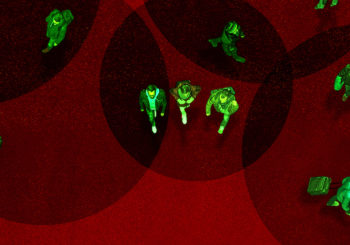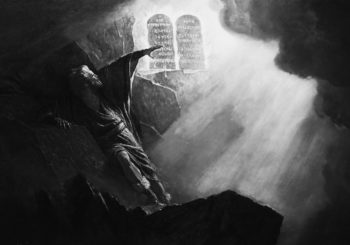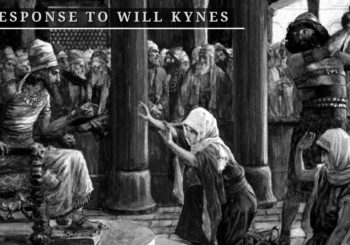Beating a Dead Category: A Response to Mark Sneed
I’m grateful to my friend and Society of Biblical Literature Wisdom in Cognate and Israelite Traditions program unit co-chair, Mark Sneed, for his recent engagement with my arguments regarding the death of the “Wisdom Literature” category. Sneed is an ideal interlocutor because his views are in many ways so close to mine. His remaining disagreements therefore highlight the heart of the issue: just how pervasive and ingrained the distorting effects of the “Wisdom Literature” category and the taxonomic approach to genre that supports it are. That Sneed, a careful and reflective scholar, who has pressed the field to reconsider its approach to both genre and the “Wisdom tradition” in valuable ways,1See, especially, Mark Sneed, “Is the ‘Wisdom Tradition’ a Tradition?,” CBQ 73 (2011): 50–71; Mark Sneed, ed. Was There a Wisdom Tradition? New Prospects in Israelite Wisdom Studies, AIL 23 (Atlanta: SBL, 2015). still falls prey to the influence of the presuppositional baggage of the “Wisdom” category proves its demise as a heuristic category. A heuristic category that impedes understanding is not a heuristic category at all.
Paradigm Incommensurability
I’m grateful for Sneed’s work on the two interrelated issues of genre and the “Wisdom tradition,” which I found helpful in developing my own view, however, on both issues he has stopped short of where I am convinced his arguments should lead. But perhaps that’s because the next step in the argument requires a more radical break with the way things have been done, nothing short of a paradigm shift, and he finds that a step too far. It would involve not merely adjusting the way we think about wisdom in the Bible, but completely transforming our approach to the issue. Indeed, as Thomas Kuhn argues in The Structure of Scientific Revolutions, one of the challenges of paradigm shifts within a discipline is the “incommensurability” of basic concepts and methods between paradigms, such that their respective proponents tend to talk past one another, often even meaning different things with the same words, as the new paradigm transforms their meanings. Some of this misunderstanding is evident in Sneed’s response to my work, though he is certainly not alone in this regard among those who seek to defend the traditional “Wisdom” category. The nature of that misunderstanding clarifies the issues at stake.
Sneed’s basic argument is that the field can go on using the term “Wisdom Literature” without all the baggage that comes with it. He claims several modern wisdom experts regularly do so. In a sense, he’s right. It should be possible to use that term and mean something completely different by it than the nineteenth-century German scholars who coined it did. Though they developed the category to single out parts of the Hebrew Bible less committed to particularistic Jewish beliefs and therefore more amenable to Christian philosophy, we don’t have to use it in that way. Words can mean what we want them to mean. Their meaning can evolve and change. But words only carry meaning within a community. And, in that community of use, the labels we use do shape our perception of the phenomena they describe. Even now, within biblical scholarship, “Wisdom Literature” does not simply mean “books particularly interested in the concept of wisdom.” Bundled with the term are a collection of assumptions about which books should be included, how they should be interpreted, who produced them, and in what ancient context. In other words, all the assumptions that Sneed betrays in his response. In fact, it’s his commitment to those assumptions that leads him (and those like him) to defend “Wisdom Literature” in the first place.
Now, to be fair, Sneed claims that the reverse is the case: that the distinctions between the “Wisdom” corpus and other literature, its universalism, social context, and ancient Near Eastern parallels support the “Wisdom Literature” category’s existence rather than being built upon the assumption that the category exists. This is where the paradigm incommensurability is most acute. It took me some time to unlearn the old way of seeing things myself. But a thought experiment helped me cross the “Wisdom”-is-dead Rubicon. When researching the history of the category, I repeatedly asked myself, if I didn’t already believe that “Wisdom Literature” existed, would this evidence force me to the conclusion that it did, or are there other plausible ways in which it may be interpreted? Along the way, I would have to constantly remind myself that “plausible” is itself freighted by my cultural context and intellectual formation. Like a fish describing the taste of water, that type of reflection on one’s culturally engrained ways of thought is difficult.
Take, for example, Sneed’s appeal to the adoption of “Wisdom Literature” among scholars of the ancient Near East. I don’t read them as being quite as enthusiastic about it as Sneed does, and several make sure to point out significant differences between their texts and common characterizations of biblical “Wisdom Literature,” such as their integration of ritual and revelation.2See Paul-Alain Beaulieu, “The Social and Intellectual Setting of Babylonian Wisdom Literature,” in Wisdom Literature in Mesopotamia and Israel, ed. Richard J. Clifford (Atlanta, GA: SBL, 2007), 8–11. Even so, Sneed claims this adoption confers legitimacy on the category. However, it could just as easily convey the extent of its modern influence—precisely my concern with the category’s continued unquestioned use. Returning to my thought experiment, it’s important to remember that none of the so-called “Wisdom” texts from the ancient Near East were discovered before the late nineteenth century, after “Wisdom Literature” had already made its inroads in biblical scholarship. If that relative chronology were reversed, would the “Wisdom” category have ever developed? Rather than seeking to understand Proverbs, Job, and Ecclesiastes by comparing them to each other, we could have compared them to different sets of texts from the ancient Near East with which each, respectively, has closer parallels, just as we do for Song of Songs or Lamentations. Literarily, Job is far more similar to Ludlul Bēl Nēmeqi than Proverbs. And Proverbs is much closer to the Instructions of Amenemope than Job. If “Wisdom Literature” did not already exist, would the same diversity of ancient Near Eastern texts still be crammed into its confines or might they have expanded the ways in which we generally think of the biblical “Wisdom” books?
Further, in addition to identifying when the modern “Wisdom Literature” category developed, my trek through early Jewish and Christian interpretation revealed to me that there are many other ways in which the texts could be grouped, all reflecting their own sort of plausibility, and each illuminating different facets of these biblical gems. So, the Jewish Sifrei Emet collection reveals the substantial ways in which Job stands squarely between Psalms and Proverbs, while the many Christian Peshitta manuscripts and Epiphanius’s four canon lists placing Job directly after either the Pentateuch or Judges raise its connections to those texts. Genesis and Deuteronomy are indeed prominent intertexts for Job, without which the book cannot be properly understood.3Will Kynes, An Obituary for “Wisdom Literature”: The Birth, Death, and Intertextual Reintegration of a Biblical Corpus (Oxford: Oxford University Press), 161–64. I only listed the most prominent textual groupings in my earlier short response. A more exhaustive list for each so-called Wisdom text like those I provide in An Obituary for “Wisdom Literature” indicates Sneed’s point about either Job or Ecclesiastes always being grouped with Proverbs does not hold.
Prototype Theory
Even so, his claim that the common connection of those texts with Proverbs demonstrates that Proverbs is the prototypical “Wisdom” book is worth further reflection, because he’s not alone in making it. Recently, for example, John Collins has appealed to Proverbs’ prototypical character to defend the “Wisdom Literature” genre category.4John J. Collins, “Wisdom as Genre and as Tradition in the Book of Sirach,” in Sirach and Its Contexts: The Pursuit of Wisdom and Human Flourishing, ed. Samuel Adams, Greg Schmidt Goering, and Matthew J. Goff, JSJSup 196 (Leiden: Brill, 2021), 28, 21. See also Benjamin G. Wright, “Joining the Club: A Suggestion about Genre in Early Jewish Texts,” DSD 17(3) (2010): 289–314. Collins, who has called prototype theory “the new messiah of generic analysis,”5John J. Collins, “Epilogue: Genre Analysis and the Dead Sea Scrolls,” DSD 17 (2010): 419. appreciates its ability to account for how “a genre is not necessarily a clearly bounded entity, but a tradition with a clear core but fuzzy edges” as members of a genre resemble its prototype to varying degrees.6Collins, “Wisdom as Genre,” 20.
But, the way prototype theory is commonly employed in biblical studies masks a semantic sleight of hand that perpetuates older views of genre under a different name. Again, I don’t think this is intentional; it’s just another effect of the difficulty of making a complete paradigm shift—in this case, on the nature of genre itself. The binary, mutually exclusive way of employing genres taxonomically to define what a text is has a long pedigree in biblical studies. As Jacqueline Vayntrub argued in her contribution to our recent debate on “Wisdom,” biblical scholars are addicted to categorization.7Jacqueline Vayntrub, “What Do the Texts Do with Their Words,” The Value of “Wisdom” as a Category for Ancient Texts and Discourses, webinar hosted by Union Presbyterian Seminary, 27 April 2021. Collins betrays this when he claims that, though individual texts may depart from the expectations genres create for interpretation in certain ways, those expectations still “point the reader to the dominant character of a text, if its genre is recognized correctly.”8Collins, “Wisdom as Genre,” 27–28; emphasis added. Both the use of the singular and the claim to an objectively “correct” genre for a text here continue to reflect taxonomic thinking about genre.
But, as recent genre theory reminds us, genres do not exist objectively to be discovered; they are subjective constructs that readers choose to apply to texts as these readers, shaped by their contingent cultural contexts, note certain affinities between them that they deem significant.9For a much deeper dive into genre theory, see ch. 4 of Kynes, An Obituary for “Wisdom Literature.” (Creating an arbitrary distinction between genres and “modes” does nothing to evade this fact—in fact, in their abstraction, modes create more space for readers to import their own presuppositions.) This choice includes, as Vayntrub argues in the article immediately following Collins’s in the same volume, the “highly circular” assumption that Proverbs is the “paradigmatic wisdom text.”10Jacqueline Vayntrub, “Wisdom in Transmission: Rethinking Sirach and Proverbs,” in Sirach and Its Contexts: The Pursuit of Wisdom and Human Flourishing, ed. Samuel Adams, Greg Schmidt Goering, and Matthew J. Goff, JSJSup 196 (Leiden: Brill, 2021), 40–42. Sure, if you already have a certain conception of “Wisdom Literature” in mind, then Proverbs will demonstrate its prototypical features with Job and Ecclesiastes doing so to lesser degrees, but, returning again to my thought experiment, must this be the case? Might it be, as Vayntrub argues, the result not of “objective observations of the texts,” but a reflection of “an interpretive framework silently operating in modern scholarship”? Are we conforming our interpretation to the nature of the texts, or are we conforming the texts to our interpretation?
To understand the dynamics of the application of Prototype Theory within biblical scholarship, it’s helpful to consider the common bird analogy, with which scholars tend to explain it. Small birds, such as robins or sparrows, are widely considered more typically “birdy” than other birds, such as ostriches or penguins, but that does not exclude the inclusion of the latter birds in the category. Genre membership may also be by degrees, judged by relative conformity to an influential prototype. However, though this analogy conveys well the graded nature of categories, it does not communicate their fuzzy boundaries, since the category bird is rigid according to a modern scientific definition—something either is a bird or it is not. Though appeals are frequently made to prototype theory to explain the fuzzy boundaries of genres, they often serve only to expand the boundaries by justifying the inclusion of texts that do not quite fit on a strict taxonomic scheme. Further, the bird analogy occludes the role of culture in genre creation, since it assumes that readers agree on the sparrow prototype. For someone raised in Antarctica, however, a penguin would be the prototypical bird, and the sparrow, which flies instead of swims and eats worms instead of fish, might not seem very “birdy” at all.11Robert Williamson, Jr., “Pesher: A Cognitive Model of the Genre,” DSD 17 (2010): 345. Because of our distinct cultural context, our genre prototypes and even our genres themselves may differ from those of the ancient cultures we study. Antarcticans’ distinct cultural experience might lead them to call a sparrow a “small, flying penguin.” Indeed, Israelites included “bats” within their category of עוף (“bird”; Lev 11:13, 18; Deut 14:11-12, 18), which indicates the contextual nature of even the modern scientific category. The identification of a textual prototype is a choice, one inevitably influenced by the cultural context of the interpreter.
The ‘Wisdom Tradition’
This brings us to the nineteenth-century cultural context in which “Wisdom Literature” first emerged. Sneed suggests that German Christians’ struggle at this time to reconcile the universalistic, humanistic, and philosophical aspects of their religion with its particularistic connection with a “theocratic” Judaism has nothing to do with the emergence of Wisdom Literature as the “universalistic, humanistic, philosophical” collection within the Old Testament.12Franz Delitzsch, Das Buch Iob (Leipzig: Dörfling & Franke, 1864), 5. He claims, “It should be plain that these ideological assumptions are technically separate from the term itself and the corpus.” “Wisdom Literature,” he argues, is not a “construct” but “simply a categorizing label for a what modern scholars have viewed as forming a corpus. Nothing more or less.” Aside from the fact that “construct” seems the ideal term for what Sneed has just described, this is a naïve view of the effect that “categorizing labels” have. As Sneed says, the label emerges from “what modern scholars have viewed as forming a corpus.” Why did these modern scholars view these particular texts as forming a corpus? No readers had done so before. Could it be that, from their particular cultural perspective, certain traits caught their eyes? And that these traits that were particularly amenable to their own ideological interests? As Sneed argues, genres (or modes) are social phenomena. We cannot ignore the social setting of those who identify them.
And this is the most important clarification that I need to make, one that my readers have had the most difficult time grasping (which means I should have communicated it more clearly, though I tried several times13Kynes, Obituary for “Wisdom Literature,” 12–15, 19, 176–77, 254.): that these nineteenth-century readers focused on these specific features and distinguished this group of texts from the rest of the canon on this basis does not, in itself, invalidate their insight. To the degree that they are responding to actual features of the texts, the genre grouping they created can help us see them. As long as the genre they identified is treated as one of the many ways these texts may be grouped together, it actually may benefit our understanding of these texts. However, this is not how “Wisdom Literature” functions in our current scholarly discourse. It’s not how it functions in Sneed’s response either. “Wisdom Literature” is not treated as a culturally contingent genre grouping—one way these texts may be read, which highlights certain affinities they share—but us an objective genre (or modal) category—what these texts are. This genre identification then determines which ancient Near Eastern parallels will be prominent in their interpretation (and which aspects of those parallels will come to the fore), how their main messages will be presented, and the social context in which they’ll be placed, as Sneed demonstrates. That’s why scholars like Sneed go to such lengths to defend it. The move from the former understanding of genre to the latter is an important paradigm shift currently spreading across the field, and in the current “revolutionary stage,” as Kuhn calls it, there’s bound to be some confusion, which is why conversations like the one we are having or the one Samuel Adams and Vayntrub organized are valuable.14The Value of “Wisdom” as a Category for Ancient Texts and Discourses, webinar hosted by Union Presbyterian Seminary, 27 April 2021; https://www.youtube.com/watch?v=1xsRVXDGjTg&t=4197s
Sneed and I agree that the “Wisdom tradition” associated with the corpus distorts its interpretation by cordoning the texts off from the rest of the canon and associating them with a distinct worldview. However, I see that “Wisdom tradition” projected onto the text as an effect of a broader “Wisdom tradition” in biblical scholarship, originating in Bruch’s work in the nineteenth-century and perpetuated by the “Wisdom Literature” category. It’s why a variety of ancient Near Eastern texts are collected together as “Wisdom Literature.” It’s why the philosophy associated with biblical “Wisdom Literature” is not considered a “divine philosophy” that culminates in the Song of Songs, which “instils into the soul the love of things divine and heavenly,” as Origen would have it,15R. P. Lawson, Origen: The Song of Songs: Commentary and Homilies, ACW 26 (Westminster, MD: Newman Press, 1957), 41. or a particularistic one grounded in the fear of Israel’s God, YHWH, as Proverbs would have it (1:7; 9:10), but non-sectarian and universal, as Bruch desired. Sneed associates this universalism with Greek philosophy and claims those nineteenth-century scholars rightly perceived the convention but then latched their own ideological concerns onto it. However, Yoram Hazony argues that even this universalistic interpretation of Greek philosophy is itself a product of post-Enlightenment thought inspired by antisemitism,16Yoram Hazony, The Philosophy of Hebrew Scripture (New York: Cambridge University Press, 2012), 12–16. which makes one wonder whether ideology and perception are as separable as Sneed believes. If this is simply one of the “rules” of the “Wisdom” mode, we need to pay more attention to who makes the rules and why. Sneed’s struggle to see the tradition in which he participates explains why his own attempt to dismantle the “Wisdom tradition” applied to the Bible only ends up expanding it further. He deals away with a purported distinctive “Wisdom tradition” by arguing the whole Hebrew Bible came from the same tradition, and that this tradition was actually shaped by “Wisdom,” with “these same Israelite wisdom writers or scribal scholars” producing and preserving all the biblical texts.17Sneed, “Wisdom Tradition,” 62-63. See Kynes, Obituary for “Wisdom Literature,” 38.
So, yes, it is theoretically possible to distinguish a group of texts concerned with the concept of wisdom or those focused more on instruction or those less explicitly interested in Israel’s law, history, or cult from other texts in the Hebrew Bible. In each case, there would be value in doing so (though it would not be the same group of texts for each). However, as Sneed’s response has demonstrated, divorcing that grouping from the scholarly “Wisdom tradition,” which Bruch initiated, is more difficult than it seems. The development of the “Wisdom” category with its own distinctive features within Israelite religion, presented most fully, prominently, and influentially by Bruch, has created a persistent interpretive trajectory for the so-called Wisdom texts, which has accumulated further scholarly assumptions over time. If we could scrape this disfiguring patina from the moniker “Wisdom Literature,” what would we have left? Sneed has not shown us. But, whatever it may be, I would be happy to learn from it, as long as it is considered not the genre category of the texts it contains but a genre grouping that highlights some of their salient features.18The same would apply to the other etic terms, such as “Pentateuch or Torah, legal material, prophetic, apocalyptic, poetic, hymnic, erotic, and historical literature,” that Sneed identifies. See Kynes, Obituary for “Wisdom Literature,” 143–44. We do not want to “throw out the baby out with the bathwater,” of course, but the water has become murky enough that distinguishing baby from bathwater is not that easy. Perhaps there isn’t even really a baby in there at all.
End Notes
1. See, especially, Mark Sneed, “Is the ‘Wisdom Tradition’ a Tradition?,” CBQ 73 (2011): 50–71; Mark Sneed, ed. Was There a Wisdom Tradition? New Prospects in Israelite Wisdom Studies, AIL 23 (Atlanta: SBL, 2015).
2. See Paul-Alain Beaulieu, “The Social and Intellectual Setting of Babylonian Wisdom Literature,” in Wisdom Literature in Mesopotamia and Israel, ed. Richard J. Clifford (Atlanta, GA: SBL, 2007), 8–11.
3. Will Kynes, An Obituary for “Wisdom Literature”: The Birth, Death, and Intertextual Reintegration of a Biblical Corpus (Oxford: Oxford University Press), 161–64.
4. John J. Collins, “Wisdom as Genre and as Tradition in the Book of Sirach,” in Sirach and Its Contexts: The Pursuit of Wisdom and Human Flourishing, ed. Samuel Adams, Greg Schmidt Goering, and Matthew J. Goff, JSJSup 196 (Leiden: Brill, 2021), 28, 21. See also Benjamin G. Wright, “Joining the Club: A Suggestion about Genre in Early Jewish Texts,” DSD 17(3) (2010): 289–314.
5. John J. Collins, “Epilogue: Genre Analysis and the Dead Sea Scrolls,” DSD 17 (2010): 419.
6. Collins, “Wisdom as Genre,” 20.
7. Jacqueline Vayntrub, “What Do the Texts Do with Their Words,” The Value of “Wisdom” as a Category for Ancient Texts and Discourses, webinar hosted by Union Presbyterian Seminary, 27 April 2021.
8. Collins, “Wisdom as Genre,” 27–28; emphasis added.
9. For a much deeper dive into genre theory, see ch. 4 of Kynes, An Obituary for “Wisdom Literature.”
10. Jacqueline Vayntrub, “Wisdom in Transmission: Rethinking Sirach and Proverbs,” in Sirach and Its Contexts: The Pursuit of Wisdom and Human Flourishing, ed. Samuel Adams, Greg Schmidt Goering, and Matthew J. Goff, JSJSup 196 (Leiden: Brill, 2021), 40–42.
11. Robert Williamson, Jr., “Pesher: A Cognitive Model of the Genre,” DSD 17 (2010): 345.
12. Franz Delitzsch, Das Buch Iob (Leipzig: Dörfling & Franke, 1864), 5.
13. Kynes, Obituary for “Wisdom Literature,” 12–15, 19, 176–77, 254.
14. The Value of “Wisdom” as a Category for Ancient Texts and Discourses, webinar hosted by Union Presbyterian Seminary, 27 April 2021; https://www.youtube.com/watch?v=1xsRVXDGjTg&t=4197s
15. R. P. Lawson, Origen: The Song of Songs: Commentary and Homilies, ACW 26 (Westminster, MD: Newman Press, 1957), 41.
16. Yoram Hazony, The Philosophy of Hebrew Scripture (New York: Cambridge University Press, 2012), 12–16.
17. Sneed, “Wisdom Tradition,” 62-63. See Kynes, Obituary for “Wisdom Literature,” 38.
18. The same would apply to the other etic terms, such as “Pentateuch or Torah, legal material, prophetic, apocalyptic, poetic, hymnic, erotic, and historical literature,” that Sneed identifies. See Kynes, Obituary for “Wisdom Literature,” 143–44.
Subscribe now to receive periodic updates from the CHT.





